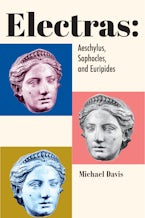Home
Our mission is to publish outstanding scholarly works, principally in the fields of philosophy, theology, and cultural and intellectual history.
Please consider St. Augustine’s Press for your charitable giving. – your gift will go far.
Latest from our blog
Please click on the name of the journal to be forwarded to the review. Chronicles Magazine review of American Multiculturalism and the Anti-Discrimination Regime Law and Liberty Review of Electras… Read More
Read MoreWhat To Expect in Future Posts
“What is necessary is to rectify names.” Bruce Fingerhut began a press blog in 2012, entitled Rectifying Names. In it he discussed all manner of things, but always from the perspective of… Read More
Read More


















































